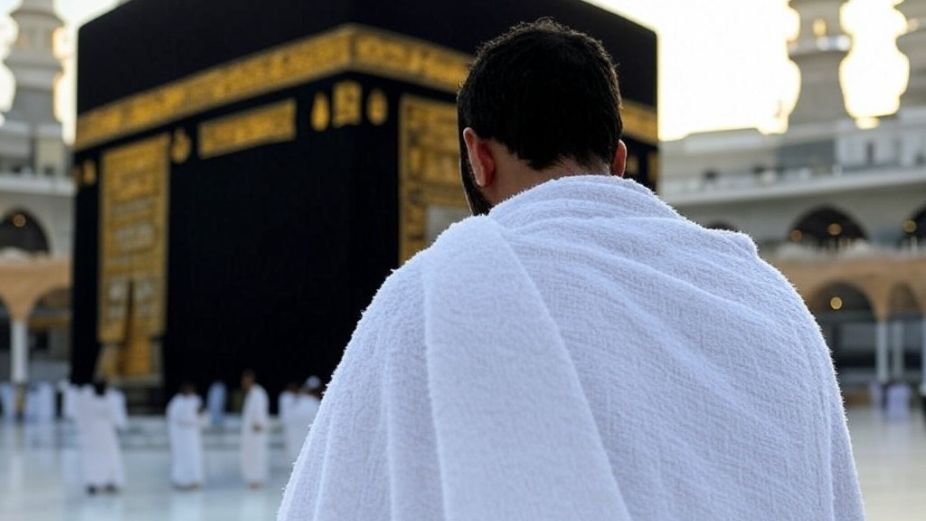
For many Maldivians, performing Umrah is both a spiritual aspiration and a significant financial investment. However, recurring scandals involving Umrah tour operators have disrupted this sacred journey for hundreds of pilgrims. Over the years, several companies have been accused of financial mismanagement and fraud, leaving pilgrims stranded abroad and placing the burden of resolution on the state—and ultimately, taxpayers.
In December 2024, Al-Hijra Travel and Tours left 23 Maldivian pilgrims stranded in Mecca after failing to secure their return flights. The company allegedly misused the funds allocated for airfare, prompting a swift response from the government. The Maldives Hajj Corporation facilitated the pilgrims’ return, covering accommodation and flights, but this intervention came at a cost to the public.
This incident is one of many. In 2023, Mashar Tours faced scrutiny for issuing bounced cheques, which also resulted in stranded pilgrims. The Ministry of Islamic Affairs revoked the company’s license, yet the financial and emotional toll on affected families remained.
A Pattern of Neglect
The recurring nature of these scandals has exposed systemic issues in the oversight and regulation of Umrah tour operators in the Maldives. Over 50 companies are authorised to organise these pilgrimages, yet enforcement of regulations has been inconsistent. Despite efforts by the Ministry of Islamic Affairs to introduce stricter penalties, such as fines and permit revocations, these measures have not been enough to deter misconduct.
The Anti-Corruption Commission (ACC) has also flagged irregularities in the awarding of licenses to tour operators. In some cases, companies with histories of malpractice have been granted permissions, highlighting lapses in due diligence. These gaps have enabled fraudulent operators to exploit the trust of unsuspecting pilgrims repeatedly.
The Cost to Taxpayers
When tour operators fail, the financial burden often falls on the state. In the case of Al-Hijra, the Maldives Hajj Corporation absorbed the costs of repatriating stranded pilgrims, drawing from public funds. These crises not only drain financial resources but also divert government attention from other pressing issues.
The repeated need for state intervention has raised questions about accountability. Why should taxpayers shoulder the cost of private sector malfeasance? The absence of a robust safety net for pilgrims exacerbates the problem, leaving families with limited recourse when things go wrong.
Proposed Reforms
Addressing these issues requires a multi-pronged approach. Experts and stakeholders suggest the following measures to curb malpractice and protect pilgrims:
- Stronger Regulatory Oversight: Licensing criteria for tour operators must be more stringent, with regular audits to ensure compliance. The Ministry of Islamic Affairs should collaborate with the ACC to vet companies thoroughly.
- Mandatory Financial Transparency: Operators should be required to disclose their financial practices, including how funds are allocated for flights, accommodation, and other expenses.
- Insurance Schemes for Pilgrims: Introducing mandatory insurance coverage for all Umrah travellers can provide a safety net, ensuring that financial losses are mitigated in case of operator failure.
- Public Awareness Campaigns: Educating potential pilgrims on how to choose reputable tour operators and identify red flags can empower them to make informed decisions.
- Dedicated Oversight Authority: Establishing an independent body to oversee all religious tour operations could enhance accountability and streamline grievance redressal.
A Broader Ethical Question
At the heart of these scandals lies a broader ethical dilemma: how can a sacred journey be monetised in a way that respects its spiritual significance? For many Maldivians, performing Umrah is a once-in-a-lifetime opportunity. The betrayal of trust by unscrupulous operators not only disrupts this spiritual quest but also undermines the social fabric.
Until meaningful reforms are implemented, the cycle of malpractice, public outrage, and state intervention is likely to continue. By addressing the root causes of these scandals, the Maldives can ensure that the sanctity of religious journeys is preserved, and the burden on taxpayers is reduced.












